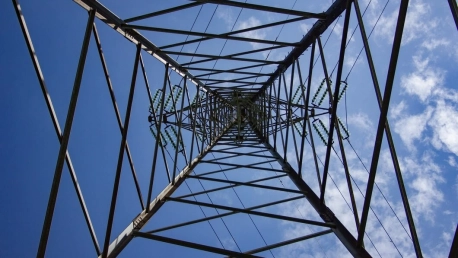With the global march towards energy efficiency and the need to accommodate the voracious energy appetite of modern society, the deployment of smart meters has become a cornerstone of electricity grid modernization. These intelligent devices promise to deliver unparalleled control over energy consumption, facilitate the integration of renewable energy sources, and enhance the overall reliability of power networks. The aspiration to improve energy sustainability has propelled the smart meter into the spotlight, with widespread expectation that this technology will engender considerable consumer benefits, including reduced energy bills and improved monitoring of energy usage. However, amidst this technological optimism, the realization of these benefits is being hampered by certain shortcomings, particularly in data management and privacy. Consequently, it is essential to overcome these challenges to unleash the full transformative potential of smart meters.
The Global Push for Smart Meters
Across continents, from the valleys of Silicon to the outback of Australia, governments and utility companies are embracing the smart meter revolution. This surge of global interest is not merely a fad but a strategic push towards an energy-efficient future. By offering real-time monitoring of electricity usage, these devices play a critical role in managing household energy consumption, thereby promising to contribute significantly toward reducing our collective carbon footprint. Australia typifies this trend, with substantial investments in smart meter technology aimed at harnessing data to achieve energy savings and drive down carbon emissions. As more homes and businesses make the switch to these advanced metering systems, expectations are high that the next wave of energy innovation will emerge.
Realizing Consumer Benefits
The utopia of smart metering promises a world where consumers have the power to control their electricity bills with precision, but reality paints a more complex picture. The crux of the issue is the advanced metering infrastructure’s current inability to deliver data of sufficient detail in real-time. The deliberate management of electricity usage hinges on information dexterity—promptly adjusting habits in response to immediate data. However, when smart meters cannot provide this level of responsiveness, the potential savings and advantages fade. The envisaged scenario, where homeowners act on feedback to optimize energy consumption or swiftly identify faulty appliances through aberrant usage patterns, remains a distant prospect. Addressing this shortfall is paramount for smart meters to drive the consumer benefits they were designed to deliver.
Challenges in Data Management
The benefits of fine-grained data are undeniable, but they come tethered to formidable operational challenges. A deluge of high-resolution data imposes an immense burden on the communication infrastructure of electricity grids, often resulting in delays and breakdowns in data transmission. Furthermore, such granularity in data collection places a hefty demand on storage infrastructure, with costs soaring to tens of thousands of dollars per terabyte per annum. As the frequency of data capture narrows from hourly to every few seconds, the corresponding increase in costs becomes staggering, raising questions about the sustainability of such intense data warehousing in the long term. The balancing act lies in capturing just enough data to be useful while avoiding the financial pitfalls that come with an overabundance of information.
Privacy Concerns
Stepping into the data-rich world of smart meters, the shadow of privacy concerns looms large. The high-resolution data collected can inadvertently become a ledger of personal habits, revealing when individuals are home, the devices they use, and the pattern of their daily activities. This intrusion into personal life extends beyond discomfort; the misuse of such intimate details raises the specter of criminal exploitation and unwelcome targeted advertising. Ensuring that individuals’ data remain private while still reaping the benefits of smart meters requires a delicate balancing act between the utility of the data and respect for consumer privacy.
A Novel Approach to Data
In navigating the labyrinth of high-volume data transmission and privacy qualms, a revolutionary method grounded in pattern recognition offers a promising path forward. By focusing on detecting ‘codewords’—signatures of energy usage patterns—this novel approach could allow the essential details to be conveyed to utilities without overwhelming communication infrastructure. This method ensures consumers retain comprehensive data, enabling detailed scrutiny and control over energy consumption, while reducing the volume of data sent to utility providers, trimming costs, and preserving privacy. What’s offered is a smart metering future that combines the benefits of detailed data analysis with the safeguarding of consumer information.
Towards A Smarter Grid
The journey to a truly intelligent energy grid hinges on unremitting progress in both technology and policy. Enhancements in smart meter software and hardware are needed in tandem with robust, carefully thought-out regulations to support the protected flow of data. It is through these advancements that we will maximize the latent potential within smart meters. A smarter grid will not only empower consumers with actionable energy information but also address the pressing issues of cost and privacy. The evolution of this technology will be a critical enabler for smarter energy usage, providing the blueprint for a more sustainable and efficient future.









